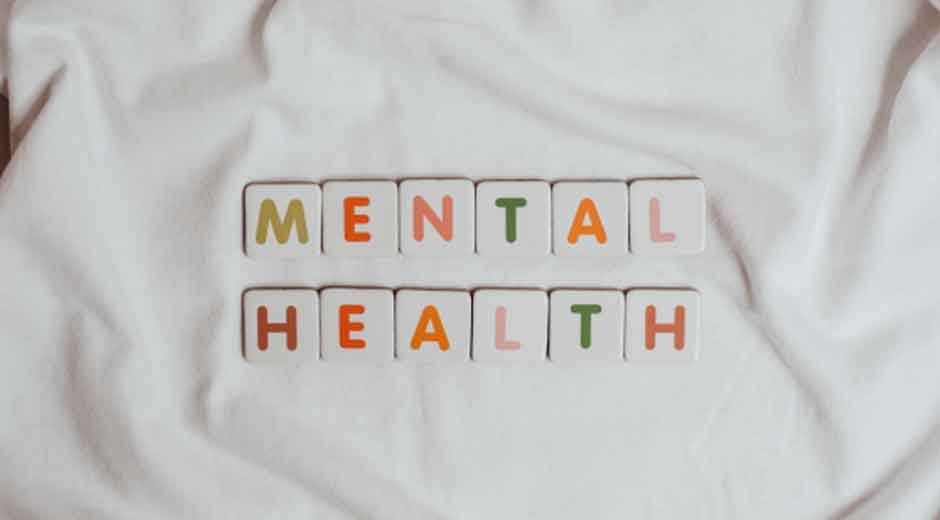Mental health issues don’t exactly kick your door down and announce their arrival. Instead, they slip in through the back window—slowly messing with your sleep patterns, straining your closest relationships, disrupting how you function day-to-day. And here’s the kicker: most people sit on these problems for months, sometimes years, before seeking help for mental health issues. Why? Because they’re not sure if what they’re going through is “bad enough” to warrant professional attention. Or maybe they’re banking on time healing all wounds.
Spoiler alert: just waiting it out rarely works. Taking action early stops small problems from snowballing into full-blown crises. The benefits of early mental health treatment reach way beyond just feeling less awful—they fundamentally change your trajectory.
Accessible Outpatient Mental Health Care
Arlington, VA has established itself as a serious player in quality mental healthcare delivery. Residents don’t need to check into residential facilities to access comprehensive treatment anymore. This reflects something bigger happening nationwide—a shift toward prevention-focused wellness and community-centered care options.
If you’re looking for timely support, treatment programs at the Arlington, VA Outpatient Mental Health Center work around your job, your classes, your family obligations. Consider this: research shows 50% of all serious mental illness begins by age 14 and 75% by age 24 (nami.org). That’s precisely why accessible outpatient services matter so much—they catch problems before they entrench themselves. You get structured professional care without pressing pause on your entire existence.
Recognizing Early Warning Signs That Indicate You Need Support
Figuring out when to reach for professional help? Yeah, that’s trickier than it should be. Your brain doesn’t flash a convenient dashboard warning.
Physical Symptoms Often Overlooked
Your body starts waving red flags before your conscious mind catches up. Exhaustion that sticks around despite adequate rest. Headaches that won’t quit. Stomach problems that seem to come from nowhere. These physical manifestations often trace back to anxiety or depression lurking underneath. Your appetite might swing wildly—either you’re raiding the fridge constantly or food holds zero appeal.
Sleep issues deserve special attention here. Staring at your ceiling at 3 AM on repeat? Sleeping half the day away but still dragging yourself through hours? That warrants a conversation with someone who knows what they’re looking at.
Emotional and Behavioral Red Flags
When sadness or worry camp out for more than two weeks, that’s your cue. Maybe you’ve started dodging friends, inventing excuses to skip gatherings that you used to genuinely enjoy. Everything irritates you—minor inconveniences feel catastrophic. This signals your emotional regulation system is overtaxed.
Pay attention when hobbies and activities that once sparked joy now feel pointless. When nothing seems worth the energy investment anymore, that’s your brain waving a white flag.
Cognitive Changes That Signal Professional Help is Needed
Brain fog rolling in. Can’t focus on straightforward tasks. Simple decisions feel impossibly complex. These cognitive shifts tell you your mental processing power is maxed out. Thoughts racing without brakes? Negative thought loops you can’t escape? Professional intervention handles these patterns remarkably well. The earlier you tackle them, the simpler they are to rewire.
The Science Behind Early Intervention Mental Health
Understanding the timing component in mental health treatment might just push you to act now instead of later.
Neuroplasticity and the Brain’s Response to Timely Treatment
Here’s something fascinating: your brain stays remarkably flexible throughout your lifetime. But early intervention mental health treatment capitalizes on neuroplasticity when it’s most responsive. Neural pathways supporting anxiety or depression haven’t carved themselves too deeply yet, which makes them easier to reshape through therapy.
Address problems early, and you’re basically training your brain to follow healthier patterns before the problematic ones become six-lane highways of automatic negative thinking.
Preventing Mental Health Condition Progression
Mental health conditions don’t typically hold steady—they evolve and intensify without treatment. Manageable anxiety can morph into full-blown panic disorder. Mild depression deepens until it touches every corner of your life.
Research consistently demonstrates that early treatment produces better outcomes and faster recovery. You’re not just managing current symptoms; you’re blocking future complications from developing.
Comprehensive Outpatient Therapy Advantages for Your Recovery Journey
Selecting an outpatient mental health center delivers practical benefits that inpatient care simply can’t offer.
Flexibility That Fits Your Life and Schedule
Residential programs require you to essentially disappear from your regular life. Outpatient care? You maintain your normal routine. Evening therapy sessions after work. Appointments squeezed between classes. Many centers now provide both in-person and virtual options, multiplying your scheduling flexibility.
This means you’re not explaining a mysterious absence to your boss or taking a semester off. Treatment weaves into your life instead of derailing it.
Cost-Effectiveness Compared to Inpatient Treatment
The outpatient therapy advantages include dramatically lower costs—you’re not covering round-the-clock supervision and facility housing. Insurance plans typically cover outpatient services, and numerous centers operate sliding scale fees adjusted to income. Studies show that having one or more outpatient behavioral health treatment visits was associated with lower adjusted mean per-member, per-month medical and pharmacy costs—$571 versus $686 over 15 months.
HSA and FSA funds usually cover outpatient mental health services, expanding accessibility.
Real-World Application and Skill Building
Perhaps the most significant advantage? You’re acquiring coping mechanisms while living your actual life. New techniques get tested immediately in real situations—managing workplace pressure, navigating complicated relationships, handling anxiety triggers as they surface in real-time.
This hands-on application makes skills stick far better than practicing them in isolation. Your therapist troubleshoots challenges as they genuinely unfold in your environment.
Continuity of Care and Long-Term Support
Outpatient treatment naturally builds long-term therapeutic relationships. You’re not completing a program and then scrambling for follow-up care—you’ve already established yourself with a provider who understands your history and adjusts treatment as circumstances shift. This continuity matters enormously for sustained wellness.
Common Questions About Early Mental Health Intervention
How early is too early to seek help from an outpatient mental health center?
“Too early” doesn’t exist here. Mental health professionals assist with stress management and resilience development even before symptoms intensify. Preventive care holds tremendous value and gains recognition as essential for long-term wellness and quality of life.
What’s the difference between outpatient mental health treatment and inpatient care?
Outpatient treatment lets you live at home and handle daily responsibilities while attending scheduled therapy sessions. Inpatient care provides around-the-clock supervision in a residential setting, typically reserved for crisis situations or severe symptoms requiring intensive stabilization and immediate intervention.
How long does early intervention treatment typically last?
Treatment duration depends on individual circumstances and symptom severity. Some people thrive with short-term focused therapy spanning 8-12 weeks, while others prefer ongoing support. Early intervention generally demands shorter treatment periods than addressing long-standing conditions that have become deeply entrenched.
Taking the First Step Toward Better Mental Health
Starting treatment often represents the toughest hurdle. Mental health struggles don’t evaporate through sheer willpower, and postponing action typically lets problems dig deeper roots. The benefits of early mental health treatment encompass faster recovery, prevention of symptom escalation, and improved outcomes across every life domain.
Outpatient care provides a practical, accessible route forward without demanding major life upheaval. You’ll secure professional support while preserving your routine, learning immediately applicable skills, and building resilience for whatever challenges emerge next. Don’t wait for crisis mode to kick in before seeking support—your mental health deserves the same proactive care you extend to your physical health.













